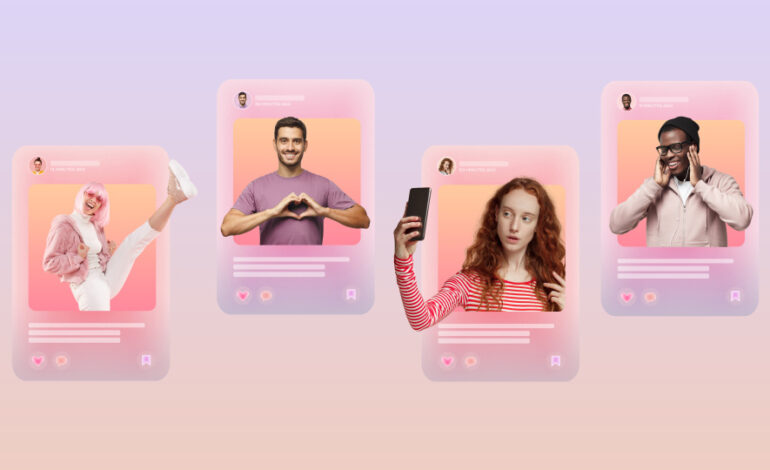AI-Generated Personas Transform Digital Culture and Perception

The emergence of hyperreal digital content is redefining the landscape of online interaction, as entirely virtual personas created through generative AI tools gain popularity. These AI-generated influencers, capable of mimicking human features, voices, and behaviors, engage with audiences and even secure brand endorsements without any physical existence. As this technology becomes more sophisticated and accessible, experts warn that the distinction between reality and fiction is increasingly difficult to discern.
The Impact of Hyperreal AI on Digital Interaction
According to researchers at Georgia Tech, the rise of hyperrealistic AI content represents both a technological breakthrough and a societal challenge. Mark Riedl, a professor in the School of Interactive Computing, explains, “AI does not have emotions as we understand them in humans, but it knows how to mimic emotional speech.” This ability to simulate human-like interactions has led to a surge in AI-created influencers, such as Nobody Sausage, who has garnered over 30 million followers through engaging short-form videos and brand partnerships.
Additionally, platforms like Character.AI allow users to interact with millions of virtual personas designed to mimic conversation and personality traits. This shift alters how audiences engage with content across popular social media channels, including Instagram and TikTok.
Potential Risks to Mental Health and Perception
The proliferation of hyperreal AI content raises concerns regarding its impact on users’ perceptions of reality, particularly among vulnerable populations. Munmun De Choudhury, also a professor at Georgia Tech, emphasizes that such distortion can lead to increased anxiety, body image issues, and a general erosion of trust in what is presented as true. Her research highlights that the already blurred lines between authentic self-expression and performative identity can become even more complicated with the addition of hyperreal AI personas. “Individuals experiencing stress or social isolation may be more prone to believe deepfakes,” De Choudhury said.
This phenomenon highlights a growing challenge regarding authenticity in a digital world filled with synthetic content. Younger audiences, particularly those from Generation Z, often evaluate AI-generated material based on emotional resonance rather than factual accuracy, while older demographics may struggle to identify synthetic cues altogether.
Navigating Misinformation and Ethical Concerns
The potential for AI to sway public opinion through persuasive storytelling is another concern raised by Riedl. He notes that narrative transportation—a psychological mechanism that immerses audiences in a story—can lead to a reduced capacity for critical thinking. The increase in deepfake incidents, including those involving public figures like Taylor Swift and Tom Hanks, illustrates the growing prevalence of misinformation. Over 179 incidents were recorded in just the first four months of 2025, surpassing the total from the previous year.
These deepfakes vary widely, from humorous portrayals to more serious instances of identity misuse, prompting ethical and legal debates. Riedl warns that the ease of creating manipulated video content tailored for specific audiences presents significant challenges to social media companies, which are under increasing pressure to address misinformation effectively.
De Choudhury argues that while labeling AI-generated content is essential, it is not a complete solution. “Platforms must invest in user-centered design, digital literacy interventions, and transparency about how algorithms surface such content,” she explained. The stakes are particularly high within mental health communities, where users rely on authenticity and lived experiences for support.
Regulatory Challenges in a Globalized AI Landscape
The regulation of AI-generated content poses additional complexities, according to Milton Mueller, a professor at the Jimmy and Rosalynn Carter School of Public Policy. He highlights that generative AI operates within a decentralized digital environment, making traditional regulatory approaches potentially ineffective. “Generative AI is part of a globalized and distributed digital ecosystem,” Mueller stated, questioning which regulatory authority could effectively manage its outputs.
While the European Union’s AI Act mandates labeling and imposes fines for non-compliance, the regulatory landscape in the United States remains fragmented. The Federal Communications Commission has outlawed AI-generated voices in robocalls, and several states are advocating for watermarking measures on political deepfakes. However, experts caution that First Amendment protections complicate enforcement efforts.
Mueller suggests that addressing AI-generated misinformation may require a shift towards decentralized governance and public discourse rather than centralized regulation. He advocates for content moderation practices that rely on transparent processes and existing legal frameworks.
As the sophistication and prevalence of AI-generated content continue to grow, it is crucial for society to adapt. Experts at Georgia Tech stress the importance of transparency, interdisciplinary collaboration, and public engagement in navigating the potential risks and opportunities presented by hyperreal media. The future of this digital evolution will depend on how platforms, policymakers, and users respond to the challenges of authenticity and trust in an increasingly complex online landscape.






